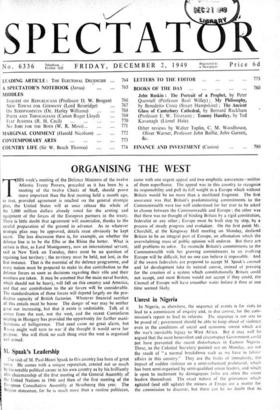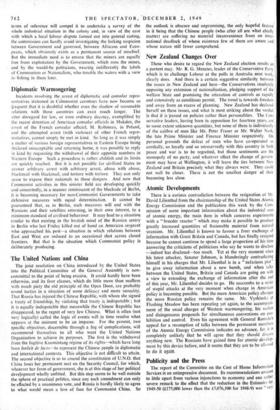Unrest in Nigeria
In Nigeria, as elsewhere, the sequence of events is for riots to lead to a commission of enquiry and, in due course, for the com- mission's report to lead to reforms. The sequence is not one to be proud of ; government should be able to keep ahead of violence even in the conditions of social and economic unrest which are the war's inevitable legacy to West Africa. But it may well be argued that the most benevolent and circumspect Government could not have prevented the recent disturbances in Eastern Nigeria. These, as the Colonial Secretary pointed out on Monday, are not the result of " a normal breakdown such as we have in labour affairs in this country." Thcy are the fruits of immaturity, the impact of sudden violence on a semi-urbanised proletariat. which has been semi-organised by semi-qualified union leaders, and which. is open to incitement by demagogues (who are often the union leaders themselves). The exact nature of the grievances which agitated (and still agitate) the miners at Enugu are a matter for the commission to discover, but there can be no doubt that its
terms of reference will compel it to undertake a survey of the whole industrial situation in the colony and, in view of the ease with which a local labour dispute fanned out into general rioting, the commission can hardly avoid investigating the lurking suspicion between Government and governed, between Africans and Euro- peans, which obviously exists as a permanent source of mischief. But the immediate need is to ensure that the miners are equally free from exploitation by the Government, which runs the mines, and by the would-be politicians, wearing indifferently the labels of Communism or Nationalism, who trouble the waters with a view to fishing in them later.



































